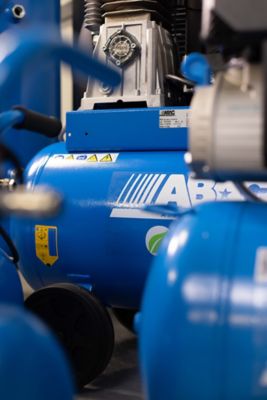Air Compressor Tank Rust Prevention
Comprehensive Guide to Preventing Rust in Air Compressor Tanks
Rust is a common issue that can significantly impact the performance and longevity of air compressors. Specifically, rust in the air compressor tank can lead to reduced efficiency, contamination of compressed air, and potential damage to the system. In this article, we will explore various strategies for air compressor tank rust prevention, ensuring your equipment remains in optimal condition.
Understanding Air Compressor Rust
Rust, or iron oxide, forms when iron or steel comes into contact with oxygen and moisture. This chemical reaction is accelerated in environments with high humidity, salt, or other corrosive elements.
Air compressors, which often operate in such conditions, are particularly susceptible to rust. The presence of rust in the tank can lead to several problems, including reduced air quality, decreased efficiency, and potential damage to internal components.
Importance of Preventing Rust in Air Compressor Tank
Preventing rust in your air compressor tank is crucial for several reasons:
- Maintaining Efficiency: Rust can clog filters, valves, and other components, reducing the efficiency of the compressor.
- Ensuring Air Quality: Rust particles can contaminate the compressed air, affecting the quality of the air used in various applications.
- Extending Lifespan: Regular maintenance and rust prevention can significantly extend the lifespan of your air compressor, saving you money on repairs and replacements.
- Reducing Downtime: Preventing rust helps avoid unexpected breakdowns and downtime, ensuring continuous operation.
Strategies for Air Compressor Tank Rust Prevention
- Drain Moisture Regularly: Moisture is a primary cause of rust in air compressors. Most compressors have a built-in moisture drain valve. Make it a habit to drain the moisture from the tank regularly. This simple step can significantly reduce the risk of rust formation.
- Regular Maintenance: Regular maintenance is essential to keep your air compressor in good condition. This includes checking for signs of rust, cleaning components, and replacing worn-out parts. Regularly inspect the compressor for any signs of rust or corrosion and address them promptly.
- Proper Storage: Store your air compressor in a dry, well-ventilated area. Avoid placing it in damp or humid environments, as these conditions can accelerate rust formation. If possible, use a dehumidifier to reduce moisture levels in the storage area.
- Use of Rust Inhibitors: Rust inhibitors are chemicals that can be applied to metal surfaces to prevent rust formation. These inhibitors form a protective layer on the metal, preventing moisture and oxygen from coming into contact with the surface. Regularly apply rust inhibitors to the internal and external components of your air compressor.
- Use of Air Dryers: Air dryers are devices that remove moisture from the compressed air before it enters the storage tank. There are various types of air dryers available, including refrigerated dryers, desiccant dryers, and membrane dryers. Choose the one that best suits your needs and install it in your air compressor system to prevent moisture buildup.
- Install Filters: Filters can help remove moisture, oil, and other contaminants from the compressed air. Regularly check and replace filters to ensure they are functioning correctly. This will help maintain the quality of the compressed air and prevent rust formation.
- Protective Coatings: Applying protective coatings to the internal and external surfaces of your air compressor can provide an additional layer of protection against rust. Epoxy coatings, for example, are highly effective in preventing rust and corrosion.
- Monitor Environmental Conditions: If your air compressor is located in an environment with high humidity or corrosive elements, take additional precautions. Use protective covers, install ventilation systems, and regularly monitor the environmental conditions to ensure they are within acceptable limits.
- Regular Inspections: Conduct regular inspections of your air compressor to identify any early signs of rust or corrosion. Addressing these issues promptly can prevent them from becoming more severe and causing significant damage.
- Training and Awareness: Ensure that all personnel operating and maintaining the air compressor are trained on rust prevention techniques. Awareness and proper training can go a long way in preventing rust and maintaining the efficiency of the compressor.
Strategies for Air Compressor Tank Rust Prevention
Preventing rust in your air compressor tank is essential for maintaining its efficiency, ensuring air quality, and extending its lifespan. By following the strategies outlined in this article, you can protect your air compressor from rust and ensure its optimal performance. Regular maintenance, proper storage, use of rust inhibitors, and moisture control are key to preventing rust formation. Additionally, investing in air dryers, filters, and protective coatings can provide added protection.
Remember, a well-maintained air compressor not only performs better but also saves you money on repairs and replacements in the long run.
By taking proactive measures to prevent rust, you can ensure that your air compressor remains in excellent condition, providing reliable and efficient service for years to come.












